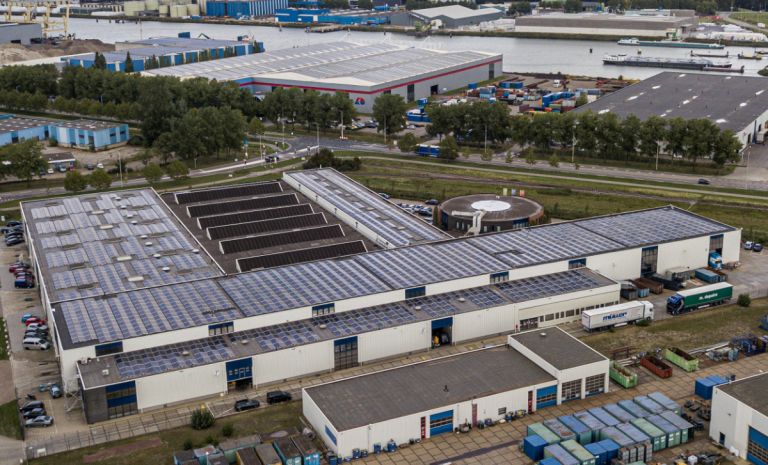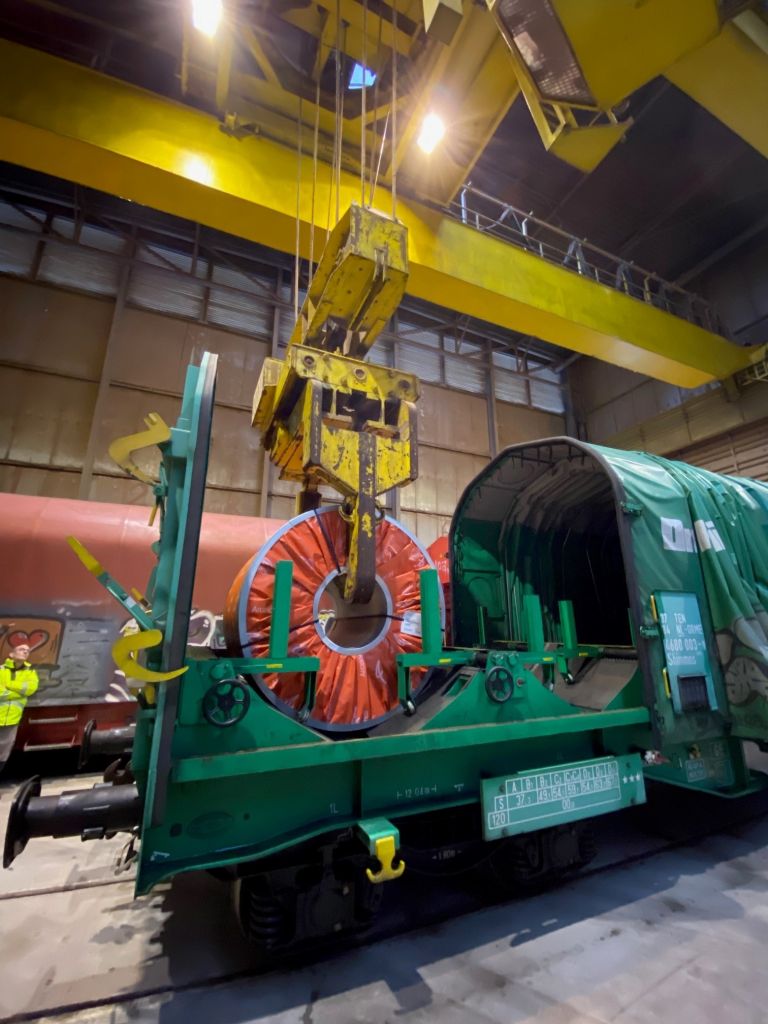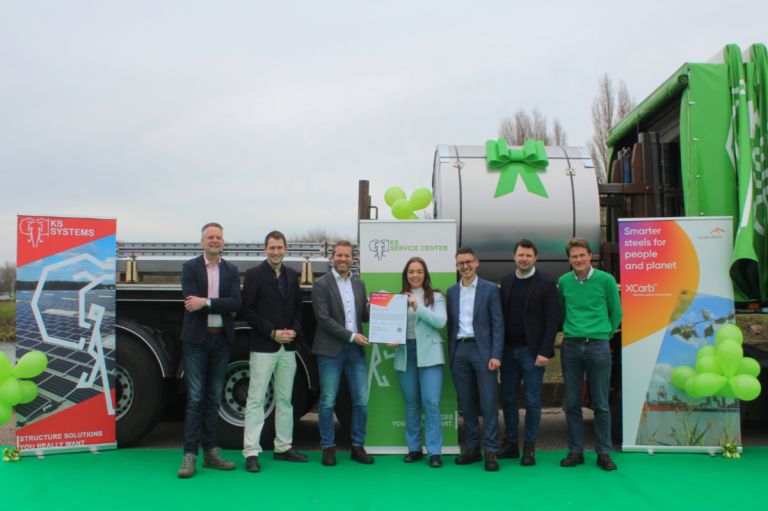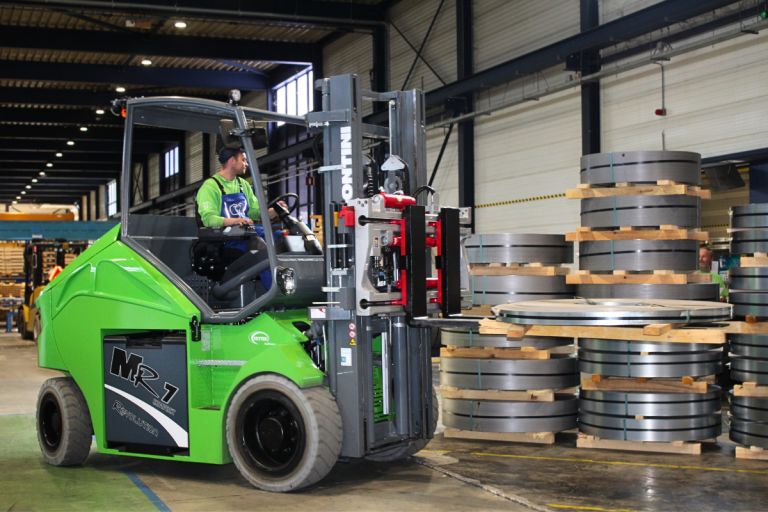Sustainability
The steel industry currently accounts for around 9% of total global CO2 emissions. This means there is significant potential for impact if we can drastically reduce our emissions. At KS Industries, we have launched a range of initiatives across our companies to contribute to this goal. We distinguish between reducing CCO2 emissions within our own operations and reducing emissions through our steel products.
Making Our Energy Use More Sustainable
A significant portion of the energy used at KS Industries is generated in-house. Solar panels installed on the roofs of our production facilities supply power to our machines and other production equipment. For the remaining energy needs, we purchase green electricity from an external provider.
Wherever possible, we have replaced manual light switches with motion sensors at our locations. This means that lights automatically switch off when a space is not in use, reducing unnecessary energy consumption.

Logistics and Transport
In an industrial manufacturing company, the transportation of goods is a key part of operations—and an area where significant CO2 savings can be made. When purchasing internal transport equipment, we opt for electric alternatives—such as forklifts—or we use biodiesel, which emits significantly less CO2.
We are also increasingly making arrangements with external suppliers to deliver materials using sustainable transport methods. For instance, steel is now delivered by train, which currently saves around forty truck trips per week. Wherever possible, we aim to transport our own products using electric or biodiesel-powered vehicles.
We also track the commuting patterns of all employees, and nearly all company vehicles are electric. This gives us clear insight into the CO2 emissions generated by commuting and customer visits, enabling us to take targeted measures to reduce them.

At KS Industries, collaboration is one of our core values. We believe that the greatest impact in reducing CO2 emissions can be achieved by working together across the entire steel processing chain. When sourcing materials, we carefully assess how suppliers have structured their products and processes through their own CO2 policies to ensure they contribute to sustainability as effectively as possible. We also actively engage with our customers to promote more sustainable practices—for example, by encouraging the use of sustainable steel and aiming to transport goods as much as possible using electric or biodiesel-powered vehicles.

Sustainable Materials
The energy transition in steel production is in full swing. Significant investments are being made in electric arc furnaces—these furnaces are primarily powered by scrap metal. Compared to coal-fired blast furnaces that produce steel from iron ore, this process results in a substantial reduction in CO2 emissions.
KS customers are increasingly recognizing the added value of this more sustainable steel, often referred to as "Green Steel." The use of Green Steel is also becoming an important factor in the awarding of public and private tenders.
When it comes to packaging and transport, we take a critical approach to sourcing wood. We work exclusively with suppliers who use wood from sustainably managed forests and are PEFC certified. We also encourage our customers to save up wooden pallets so we can take them back with the next delivery—for reuse or to be processed into biofuel.

Participation in Collaborative Platforms
Exchanging ideas on sustainability accelerates the implementation of measures to reduce CO2 emissions. Collaboration keeps us sharp and inspires innovative sustainability solutions. In fact, interaction with companies and organizations from other industries and sectors often leads to fresh ideas and unexpected partnerships.
For example, we are a member of the Stichting Positieve Impact (Positive Impact Foundation), a foundation that organizes events focused on sustainability—events in which we actively participate. It also serves as a networking platform for entrepreneurs and like-minded individuals who are committed to making progress together on this important topic.
Milestones
Across KS Industries, our various companies are actively working on sustainability and their CO2 policies. We’ve already reached an important milestone with our first ISO 14001 environmental management certification—an achievement we proudly celebrated together.
But there’s still plenty of work to be done. We are now aiming for new milestones, including certification for the CO2 Performance Ladder and other relevant standards. These certifications are essential to accurately measure and verify the CO2 footprint of KS Industries’ companies. This allows our customers to clearly understand how they are contributing to a cleaner environment and helps them demonstrate accountability in public and private tenders.